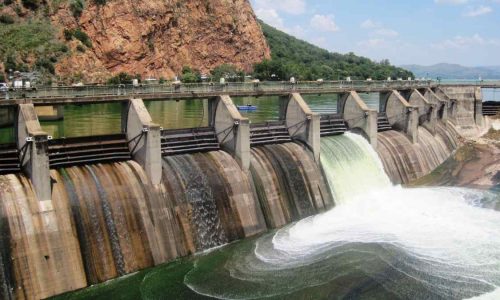Indonesia has huge investment opportunities for foreign investors in renewable energy including solar, hydroelectric, geothermal and wind energy in various parts of the country. The potential makes an investment in the green energy sector a lucrative opportunity.
Chairman of the Indonesian Chamber of Commerce and Industry (KADIN) M. Arsjad Rasjid P.M. said Indonesia’s current renewable energy contribution was still at 12% and the country was expected to use renewable energy by up to 23% by 2025 as national energy source.
Investment opportunities
“Foreign private investment in productive capacities, particularly in renewable energy and green transition, can play a significant role in sustainable economy,” he said in a speech at the 2022 Indonesia-Europe Business Forum organized by Foreign Ministry on March 1, 2022.
Under the Paris Agreement in 2015, countries in the world agreed to work together to limit global warming to 1.5 degrees Celsius. Indonesia has also committed to Global Climate Change Initiative including net zero emission by 2060, or sooner if possible. To achieve the target, Indonesia is encouraging transition to clean energy.
Rasjid said the current annual investment in clean energy capacity is approximately IDR132 trillion between 2015 and 2030. The investment may increase to IDR227 trillion as demand for energy continues to grow. However, in the transition to carbon neutral and net zero emission in 2060, Indonesia still needs investment for around US$25 billion per year or around IDR360 trillion per year.
Acknowledging bottlenecks to reach net zero emission
He acknowledged that there were several bottlenecks in order to reach renewable energy potential and achieve net zero emission target in Indonesia. Business usually finds it difficult to justify investment in net zero emission energy at this stage due to limited infrastructure and technology.
“To remove this bottleneck, we need public and private cooperation to fund the project and to find breakthrough in helping business realigning their business model to net zero emission,” Rasjid added.
Beside that market entry barrier, the government’s decision to give energy subsidies to fossil fuel, regulated electricity tariff and unattractive renewable energy tariffs have indirectly created barriers for energy companies transition into greener energy and limited option for power generation companies.
“Power generation companies have limited choice to change the power generation technology due to agreement with PLN [state-owned electricity company]. Any changes with power generation will need to be reflected in power purchase agreement which is highly regulated and take years for any changes to take place,” Rasjid said.
Recognizing this obstacle, the KADIN will continue to promote efforts to support government and business as well as stimulate investment in pushing Indonesia toward more environmentally friendly future.
Three programs to support green energy
KADIN has initiated several programs such as Net Zero Hub. KADIN launched the Net Zero Hub program in the first quarter of 2022 as a platform to built a critical mass in the net zero emission movement and support companies at all stages of their net zero emission journey.
Second, KADIN also continues to support the implementation of PLN’s energy plan for 2021 to 2030. PLN has recently published its 2021-2030 electricity supply business plan which aimed at increasing the share of renewable energy to 51.6% of the total plan of additional electricity generation capacity through efforts such as converting diesel fuel power plant into renewable power plants and retiring all coal fired power plants.
Third, KADIN established the Indonesia Impact Fund in 2019 via the APEC Business Advisory Council Indonesia. The fund promote investment to achieve sustainable development goals in area such as empowering climate smart innovation and energy transition.









